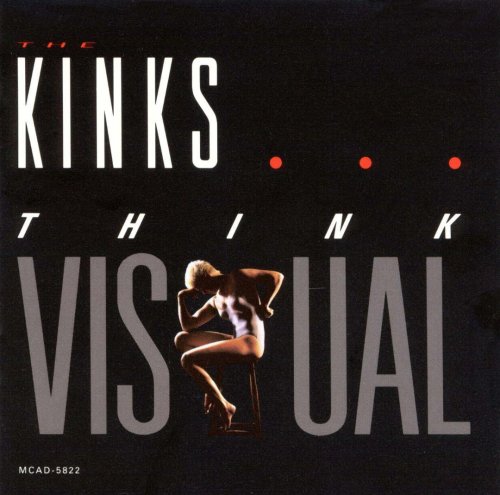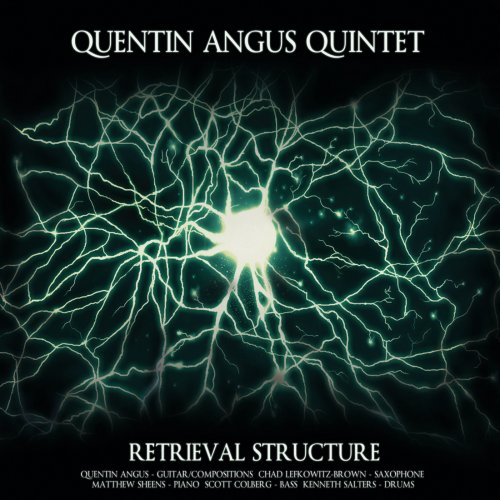The Kinks - Think Visual (1986)

Artist: The Kinks
Title: Think Visual
Year Of Release: 1986
Label: Metronome
Genre: Pop Rock
Quality: FLAC (tracks+.cue,log,scans)
Total Time: 44:23
Total Size: 313 Mb
WebSite: Album Preview
Tracklist: Title: Think Visual
Year Of Release: 1986
Label: Metronome
Genre: Pop Rock
Quality: FLAC (tracks+.cue,log,scans)
Total Time: 44:23
Total Size: 313 Mb
WebSite: Album Preview
01. Working At The Factory
02. Lost And Found
03. Repetition
04. Welcome To Sleazy Town
05. The Video Shop
06. Rock 'N' Roll Cities
07. How Are You
08. Think Visual
09. Natural Gift
10. Killing Time
11. When You Were A Child
In typically perverse style, Ray Davies kicks off the Kinks’ debut effort for their new label with “Working at the Factory,” a searing indictment of the industrialization of rock. The song finds Ray in a mood of pissed-off resignation, as if he’s finally given up altogether on whatever remained of his rock & roll fantasy. Ray even points a finger at “the corporations and the big combines,” which he blames for having “turned musicians into factory workers on assembly lines.” And on the title track of Think Visual, Ray mocks the sort of bottom-line music-biz advice that gets thrown his way: “Marketing says we gotta merchandise/But economy says we gotta minimize huh/We gotta bud-get to face and the market place is full/Of competition, competition.”
But don’t expect to hear the Kinks talking tough like that on the airwaves — “Rock ‘n’ Roll Cities,” the first single from Think Visual, is anything but a gutsy statement. This utterly uninspired tour song — written by Dave Davies around a woefully tired riff — engages in the worst sort of rock hucksterism. He even resorts to spitting out the names of a few cities, “from Buffalo to the Gulf of Mexico.” This is the sort of desperate, airplay-seeking number that only a radio programmer could love.
Still, fear not, Kinks Kroniklers — all is not lost. Ray Davies continues to be one of rock’s most intelligent songwriters, particularly on the slower material. “Lost and Found,” for example, is a gorgeous ballad about a couple in New York City weathering their own storm as a hurricane sweeps across the coastline. And the melancholy “How Are You” is another of Ray’s well-crafted songs of love and loss.
But one wonders why — aside from the obvious business concerns — Ray Davies needs the Kinks anymore. At this point, the group features as many original members of Argent as it does original members of the Kinks. While the playing on Think Visual is always competent, it’s rarely more than that. And Dave Davies’s two songwriting contributions — “Rock ‘n’ Roll Cities” and the equally boring “When You Were a Child” — indicate that the longstanding sibling rivalry between the Davies brothers may have outlived its artistic purpose. Think Visual is another acceptable Kinks album, but it’s also a frustrating suggestion that Ray Davies remains capable of much, much more.
But don’t expect to hear the Kinks talking tough like that on the airwaves — “Rock ‘n’ Roll Cities,” the first single from Think Visual, is anything but a gutsy statement. This utterly uninspired tour song — written by Dave Davies around a woefully tired riff — engages in the worst sort of rock hucksterism. He even resorts to spitting out the names of a few cities, “from Buffalo to the Gulf of Mexico.” This is the sort of desperate, airplay-seeking number that only a radio programmer could love.
Still, fear not, Kinks Kroniklers — all is not lost. Ray Davies continues to be one of rock’s most intelligent songwriters, particularly on the slower material. “Lost and Found,” for example, is a gorgeous ballad about a couple in New York City weathering their own storm as a hurricane sweeps across the coastline. And the melancholy “How Are You” is another of Ray’s well-crafted songs of love and loss.
But one wonders why — aside from the obvious business concerns — Ray Davies needs the Kinks anymore. At this point, the group features as many original members of Argent as it does original members of the Kinks. While the playing on Think Visual is always competent, it’s rarely more than that. And Dave Davies’s two songwriting contributions — “Rock ‘n’ Roll Cities” and the equally boring “When You Were a Child” — indicate that the longstanding sibling rivalry between the Davies brothers may have outlived its artistic purpose. Think Visual is another acceptable Kinks album, but it’s also a frustrating suggestion that Ray Davies remains capable of much, much more.





![Joe Lovano, Winston Salem Symphony & Michelle Merrill - a raft, the sky, the wild sea (2026) [Hi-Res] Joe Lovano, Winston Salem Symphony & Michelle Merrill - a raft, the sky, the wild sea (2026) [Hi-Res]](https://www.dibpic.com/uploads/posts/2026-02/1770314335_cover.jpg)

![Ron Carter & Ricky Dillard - Sweet, Sweet Spirit (2026) [Hi-Res] Ron Carter & Ricky Dillard - Sweet, Sweet Spirit (2026) [Hi-Res]](https://www.dibpic.com/uploads/posts/2026-02/1770315458_cover.jpg)
